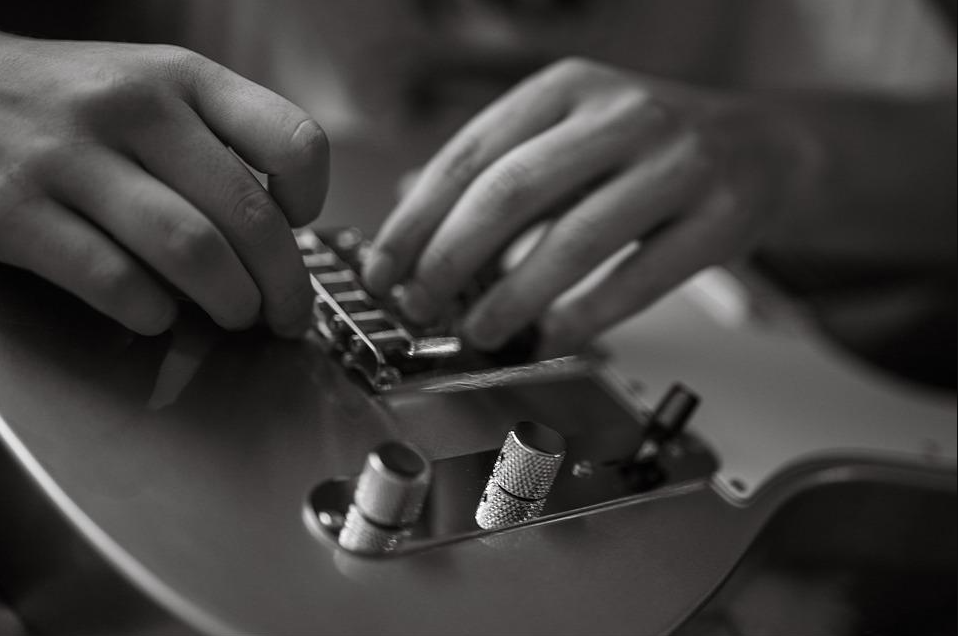
Music has the power to move us, evoke emotions, and transport us to another world. Behind every beautiful sound is an instrument, crafted by skilled hands and honed with precision. The luthier is the craftsman responsible for creating, repairing, and maintaining stringed instruments such as guitars, violins, and cellos. The art of luthiery combines woodworking skills, musical knowledge, and attention to detail to produce instruments with excellent tone, resonance, and playability. In this article, we will explore the steps required to become a guitar luthier, from acquiring basic woodworking skills to setting up a workshop, and everything in between. Whether you’re a musician looking to build your own instrument or aspiring to make a career as a guitar luthier, this guide will provide you with the essential information to get started.
Understanding the Role of a Guitar Luthier
The first step in becoming a guitar luthier is to understand what the role entails. Guitar luthiers are responsible for crafting, repairing, and maintaining stringed instruments, such as guitars, violins, and cellos. They use a combination of woodworking skills, musical knowledge, and precision to create instruments with excellent tone, resonance, and playability. Guitar luthiers often work with musicians, instrument collectors, and music stores, and play an essential role in the music industry.
Acquiring Basic Woodworking Skills
Through enrollment at Guitar Craft Academy, you will develop the necessary woodworking skills to become a great guitar luthier. These skills include using hand and power tools, sawing, sanding, planing, and measuring. It’s essential to practice and refine these skills to ensure that your instruments are well-crafted, durable, and visually appealing. You can learn these skills through online tutorials, woodworking classes, or books on the subject.
Learning the Fundamentals of Instrument Building
In addition to woodworking skills, it’s essential to understand the fundamentals of instrument building. This includes studying the construction, anatomy, and parts of the instrument and how they work together to produce sound. You can learn these fundamentals by studying instrument-making books, attending workshops or seminars, or taking classes at a guitar luthier school.
Developing Expertise in Instrument Repair and Maintenance
One of the most critical skills for a guitar luthier is the ability to identify and fix common issues with instruments. This includes repairing cracks, warping, and buzzing strings, as well as adjusting the instrument’s action and intonation. By developing expertise in instrument repair and maintenance, you can provide value to musicians and differentiate yourself from other guitar luthiers in the industry.
Apprenticeships and Internships
One of the best ways to gain practical experience as a luthier is to work alongside an experienced professional. This can be done through apprenticeships or internships, where you can learn valuable skills and techniques from seasoned guitar luthiers. You can find opportunities by networking with local luthiers or by applying to apprenticeship programs at guitar luthier schools.
Attending a Guitar Luthier School
If you’re serious about becoming a luthier, attending a luthier school can provide a formal education and training in instrument building, repair, and maintenance. These schools offer hands-on instruction, mentorship from experienced luthiers, and access to specialized tools and equipment. You can choose from a variety of programs that range from several weeks to several years in length.
Building a Professional Network
Networking with other luthiers, musicians, and music store owners can help you grow your business and gain valuable insights into the industry. Joining professional associations, attending conferences and workshops, and collaborating with other luthiers can help you build a strong network of contacts and potential clients.
Building a Portfolio
Building a portfolio of your work is essential for showcasing your skills and attracting potential clients. Your portfolio should include high-quality photos of your instruments, testimonials from satisfied customers, and descriptions of your process and expertise. You can also display your portfolio at trade shows, music stores, and online platforms such as social media and your website.
Setting up a Workshop
Once you’ve acquired the necessary skills and knowledge, it’s time to set up a workspace where you can build and repair instruments. This requires investing in specialized tools and equipment, such as a workbench, chisels, saws, sandpaper, and varnish. You can set up your workshop at home or rent a space in a shared workshop or music store.
Guitar Luthier School | Guitar Craft Academy
Whether you learn through online tutorials, classes, or guitar luthier schools, it’s essential to understand the fundamentals of instrument building, repair, and maintenance. By gaining practical experience through apprenticeships or internships and obtaining a new skill set, you can demonstrate your expertise and build a strong professional network. Setting up a workshop with specialized tools and equipment and building a portfolio of your work can showcase your skills and attract potential clients. As a guitar luthier, you play an essential role in the music industry, crafting, repairing, and maintaining instruments that create beautiful music for generations to come.
